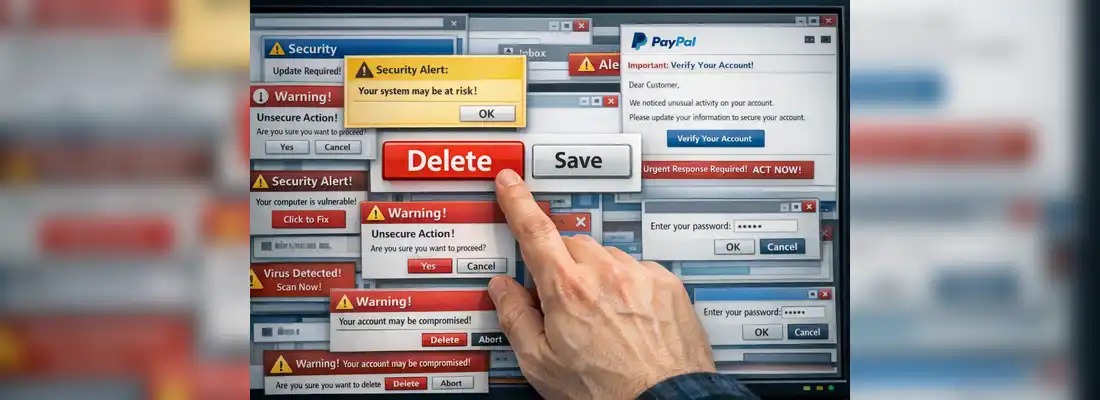McDonald's Hiring Bot Blunder: AI, Fries and a Side of Job Seeker Data
Date: 11 July 2025

Everyone is talking about how artificial intelligence is transforming the way businesses recruit talent. But a startling breach at the world’s favourite fast food joint has raised serious concerns about security in AI-powered hiring systems. In this blog, we break down everything that’s happened in this breach and why McDonald’s Olivia is making news globally!
McDonald’s recently found itself at the centre of a data leak controversy. This time, it wasn’t over additives, fries or burgers, but job applicant data.
At the heart of the breach was Olivia, an AI chatbot developed by Paradox.ai and used by McDonald’s to streamline its recruitment process. What was meant to be a tool for efficiency and convenience turned into a security nightmare. Researchers discovered a shockingly simple vulnerability—an administrator account still using the default password “123456”. This careless oversight potentially exposed sensitive information from over 60 million job applications, spanning years.
We unpack everything you need to know about the McDonald’s AI bot data leak. Whether you're a cybersecurity professional, a business leader, or a job applicant yourself, this breach serves as a powerful reminder of how even the most basic security flaws can lead to massive consequences.
What Happened in the McDonald’s Data Breach
McDonald’s uses an AI recruitment assistant called Olivia, provided by Paradox.ai, to screen applicants. It gathers contact information, resumes/CVs and shift preferences. It even administers personality tests via the McHire platform.
On June 30, 2025, independent security researchers Ian Carroll and Sam Curry discovered a “Paradox.ai staff” admin login on McHire. It still accepted the default pair “123456” for both username and password—without any two-factor authentication. Source: Wired
Ian, a security tester known for his independent work, began investigating the system after encountering complaints regarding the chatbot's performance. “I just thought it was pretty uniquely dystopian compared to a normal hiring process, right? And that's what made me want to look into it more. So I started applying for a job, and then after 30 minutes, we had full access to virtually every application that's ever been made to McDonald's going back years,” Ian told Wired.
Ian attempted common login credentials. He first tried “admin” for both username and password. In the second attempt, he tried “123456” and voila, he got full admin control over a test franchise account. By changing applicant ID values in the API (an IDOR vulnerability), they viewed chat logs and personal data for up to 64 million applications over several years.
The data that was openly accessible included:
- Names, emails, phone numbers, IP addresses, and some home addresses.
- Chat histories, including personality test responses and resume details.
- No financial data or social security numbers were exposed. However, the compromised data still poses major phishing risks.
Responses by McDonald’s & Paradox.ai
McDonald's attributed the data vulnerability to its third-party provider, Paradox.ai, in a statement to WIRED. The company expressed its disappointment, stating, “We’re disappointed by this unacceptable vulnerability from a third-party provider, Paradox.ai.”
McDonald's further confirmed that upon learning of the issue, they “mandated Paradox.ai to remediate the issue immediately, and it was resolved on the same day it was reported to us.”
Emphasizing their commitment to data protection, McDonald's concluded, “We take our commitment to cyber security seriously and will continue to hold our third-party providers accountable to meeting our standards of data protection.”
Paradox.ai said it disabled the exposed test account within hours of the alert and fully resolved the vulnerabilities by July 1. It has also initiated a bug bounty program to uncover future security weaknesses.
The AI-powered digital assistant provider released a blog post on its site about the incident.
Here are some of the key points from the post:
- “At no point was candidate information leaked online or made publicly available.
- Five candidates in total had information viewed because of this incident, and it was ONLY viewed by the security researchers.
- This incident impacted one organization – no other Paradox clients were impacted.”
Paradox.ai also reiterated in the post that they are committed to providing their clients with comprehensive information. Operating in both the people and software sectors, the company emphasised that maintaining trust with clients and candidates is not merely an option, but a fundamental principle for them.
Why This Incident Has Made Headlines
- Scale & Scope: The breach potentially affected tens of millions—upward of 60–64 million applications. The sheer scale of the data that could be compromised is staggering. As experts have pointed out, this data, in the wrong hands, could expose millions of job applicants to phishing scams and identity theft, which is worrying to say the least.
- Phishing & Fraud Risks: The absence of direct financial information in the leaked data, while a small relief, does not mitigate the substantial risk of sophisticated social engineering attacks. Threat actors, armed with personal details and even personality assessment tests, could launch highly convincing and personalised phishing campaigns. They can also, in such cases, glean information available in public, such as through LinkedIN profiles, and combine this with leaked data to unleash sophisticated impersonation scams. Recently, the chairman of Marks and Spencer, has attributed the major cyber attack on M&S to such sophisticated impersonation tactics.
- AI + Fragile Security = “Dystopian Hiring”: The combination of AI-facilitated hiring and careless security protocols has drawn heavy criticism globally. Some experts, including the security researchers, have even labeled this a “dystopian” hiring tool. The incident has sparked a broader debate about the ethical implications of deploying artificial intelligence in sensitive areas like human resources.
Lessons Learned
1. Never Ignore Default Accounts: The biggest lesson here sounds simple but is clearly not! Default credentials (e.g., “admin/admin”, “123456”) should always be changed, always. The better option? Disable them entirely from any live system, especially test accounts still accessible to the internet.If not promptly disabled or secured with robust credentials, they become critical entry points for attackers. To mitigate these risks, it is imperative that all default credentials be changed immediately upon system deployment. Regular audits of system accounts and their associated credentials are also crucial. There’s no way around this to ensure ongoing security and rectify lingering vulnerabilities.
And even low-privilege or test accounts warrant secure measures like multi-factor authentication and complex passwords.
2. Perform Regular Audits: The McDonald’s episode is another sad reminder that proactive measures to address common vulnerabilities is non-negotiable. Everyone talks about it but unfortunately everyone doesn’t get down to it as often as they should. Identification and remediation of dormant accounts should be a top priority. These inactive user accounts, often forgotten, can become significant security liabilities if compromised.
3. Enforce Vendor Security Accountability: Again, an oft-repeated lesson but a less frequently implemented one. Companies like McDonald’s must vet third-party providers rigorously. There’s just no two ways about this.
The McDonald's data leak highlights the critical security risks posed by third-party vendors. Thorough third-party security assessments must be conducted annually or bi-annually. It’s also becoming increasingly important to have contractual safeguards in place. Agreements must contain strong data protection clauses defining ownership, usage, retention, deletion, encryption, and breach notification. Contracts should also include audit rights and SLAs with penalties for non-compliance.
Automated tools for continuous monitoring and a dedicated third-party risk management team are highly recommended today.
Final Take
This incident spotlights the danger of scaling AI without sound security practices. An automated recruitment bot may streamline hiring, but a single overlooked test account can expose millions of personal records with ease. For job seekers, it’s a reminder to guard digital footprints; for employers and vendors, a call to enforce rigorous security standards at every level.
Beyond technical measures, it emphasises the necessity for clear policies regarding data handling. It also brings the spotlight back on employee training on cybersecurity best practices, and a culture that prioritises security as an integral component of innovation and operational efficiency. The pursuit of automation and scale must always be balanced with an unwavering commitment to data protection and cybersecurity best practices.





.webp)


